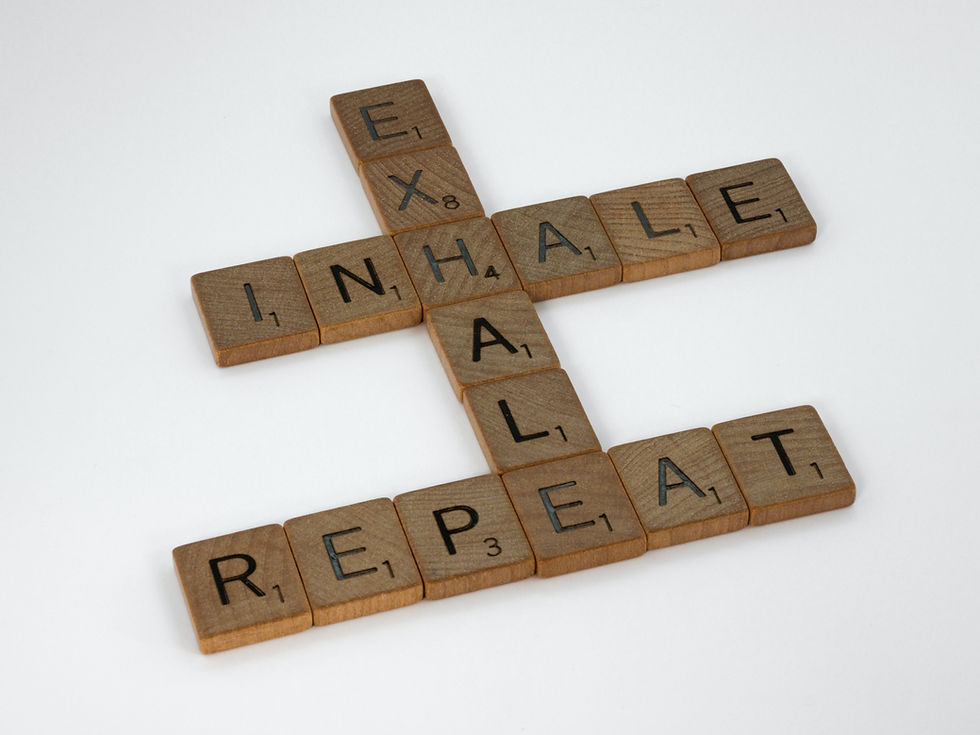Understanding Water Weight and Bloat
- Marissa Sylvester
- Apr 13, 2022
- 3 min read
Have you gained weight or are you just retaining water?

The human body is made up mainly of water; around 60% total volume. When your hydration level is not balanced, and you are not drinking enough water, your body will hang on to it or “store it”. So, when you stand on the scale, your body’s weight goes up because water is heavy. We call this water retention. It can cause you to feel less nimble, or less active. It can also cause:
bloating
puffiness
Swelling
Water retention is a common health issue and can occur on a daily basis. Drinking enough water is not the only reason this occurs. A number of factors can cause it including:
Diet
Menstrual cycle
Stress
Retain types of exercise.
Here’s a New Way to Think About Water Retention and Your Hormones:
British researcher, Katharina Dalton suggests that low blood sugar during PMS can lead to water retention. Dalton argues that low blood sugar causes the body to release adrenaline, signaling the body to discharge the stored glucose. Once the glucose leaves, the cells are then filled up with water leading to bloating and “weight gain.” Don’t worry, If you keep reading, I’ll give you tips to avoid low blood sugar during PMS.
Recognizing Water Retention
It is easy to spot water retention by a weight gain of about 2 to 5 pounds of water in a period of 24-48 hours. This is a common sign of edema which is characterized by a bloated abdomen. Other signs include swelling in the fingers, hands, ankles, feet, and face. Out of nowhere, your pants will feel extra tight. Many women who experience this condition complain of pain in swollen areas of their bodies, especially the ankles and the feet. Let’s face it these psychological changes also muck with our mind, confidence and self-esteem. It’s a confusing and frustrating time for so many and believe it or not people suffer in silence not understanding that it is extremely common and more people have these types of challenges. More than you think…
TIPS TO HELP YOU RETAIN LESS WATER
TIP One: Take a magnesium supplement
Magnesium is a key electrolyte and mineral that has been extensively researched and shows that it has over 600 roles within the human body. When studied in women’s health, magnesium has been shown to reduce water weight and premenstrual symptoms (PMS). National Library of Medicine.
These changes occur because magnesium plays an integrative role with other electrolytes, such as sodium and potassium. Together, these vital minerals help control your body’s water balance.
Some foods rich in magnesium include spinach, avocado, oatmeal and pumpkin seeds.
TIP Two: Exercise Exercise is a terrific way to reduce water weight in the short term. Any form of exercise increases sweat, which means you will lose water.
The average fluid loss during one hour of exercise is anywhere between 16–64 ounces (0.5–2 liters) per hour, depending on factors such as heat and clothing. During exercise, your body also shifts a lot of water into your muscles.
Another good option to increase sweat and water loss is the sauna, which you could add in after your gym session.
This is not to say you shouldn’t drink water during training. You still need to drink plenty of water during your training session or you could suffer from post-workout bloating! Sounds like a double negative but I promise you it isn’t.
TIP Three: Sleep more
Research on sleep highlights that it’s just as important for health as diet and exercise. National Library of Medicine.
Sleep can also impact the sympathetic renal nerves in the kidneys, which regulate sodium and water balance.
Sleeping may also help your body control hydration levels and minimize water retention. As sleep allows our body to focus deeply on detoxification, autophagy (destruction of damaged or redundant cellular components occurring in vacuoles within the cell) and rejuvenation.
Aim to get a healthy amount of sleep per night, which for most individuals will be around 7–9 hours.

Listen, I know how uncomfortable unwanted bloating or puffiness in the body can feel. If you want to get rid of water weight fast there are many natural ways to do so and I am here to help and support you. By taking a magnesium supplement, getting enough sleep every night, exercising regularly, and eating well – you can be well on your way to beating the bloat!
Want more tips like this? Join my community! I’ll keep you in the loop of new resources, guides, and articles I publish just like this! JOIN HERE
Marissa, R.H.N.




Comments